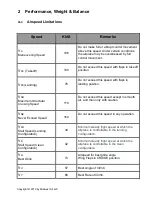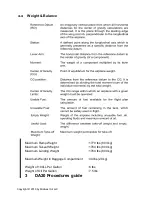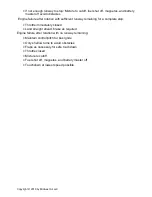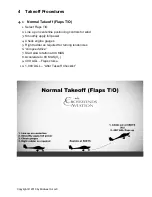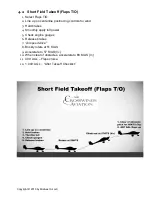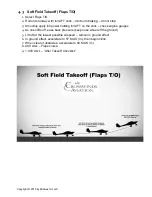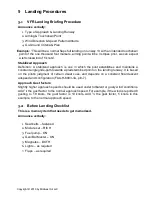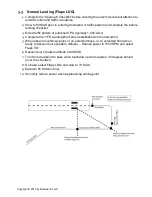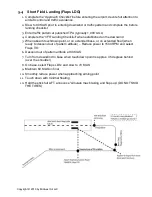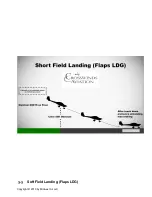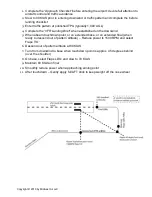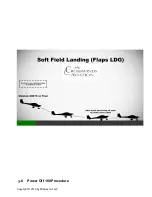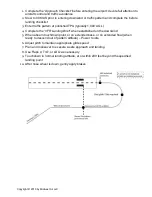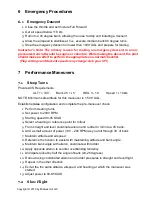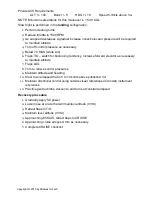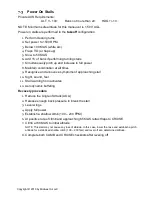
Copyright © 2019 by Midwest Air LLC
6 Emergency Procedures
6.1
Emergency Descent
1.
Close the throttle and set mixture Full Forward
2.
Get air speed below 118 kts
3.
Roll into a 45 degree bank, allowing the nose to drop and initiating a descent
4.
Allow the airspeed to stabilize at V
NO
, execute medium bank 90 degree turns
5.
Stop the emergency descent no lower than 1000’ AGL and prepare for landing
Instructor’s Note: The primary reason for making an emergency descent in a non-
pressurized aircraft would be engine or cabin fire. While making the descent, the pilot
should make an effort to perform the appropriate non-normal checklist.
(Flap settings and descent speeds may change. Ask your CFI)
7 Performance Maneuvers
7.1
Steep Turns
Private ACS Requirements:
ALT +/-
100’
Bank 45
◦
+/- 5
◦
HDG +/- 10
◦
Speed +/- 10kts
NOTE: Minimum safe altitude for this maneuver is 1,500’ AGL.
Establish
cruise
configuration and complete the pre-maneuver check.
1.
Perform clearing turns
2.
Set power to 2000 RPM
3.
Starting speed 90-95 KIAS
4.
Select a heading or reference point for rollout
5.
From straight and level coordinate aileron and rudder to roll into a 45
◦
bank.
6.
Add a small amount of power (100
– 200 RPM) as you roll through 30
◦
of bank
7.
Maintain altitude and airspeed
8.
Reference the horizon to assist with maintaining altitude and bank angle
9.
Maintain bank angle with aileron, coordinate with rudder
10.
Apply opposite aileron to counter overbanking tendency
11.
Anticipate rollout by half the angle of bank (20-25 degrees)
12.
Roll out using coordinated aileron and rudder pressures to straight and level flight
13.
Repeat in the other direction
14.
Exit at the the same altitude, airspeed, and heading at which the maneuver was
started
15.
Adjust power to 90-95 KIAS
7.2
Slow Flight
Summary of Contents for DA20 C1 Eclipse
Page 1: ...Copyright 2019 by Midwest Air LLC DA20 C1 Eclipse Training Manual...
Page 18: ...Copyright 2019 by Midwest Air LLC 5 5 Soft Field Landing Flaps LDG...
Page 20: ...Copyright 2019 by Midwest Air LLC 5 6 Power Off 180 Procedure...
Page 33: ...Copyright 2019 by Midwest Air LLC Eights On Pylons Maneuver...

